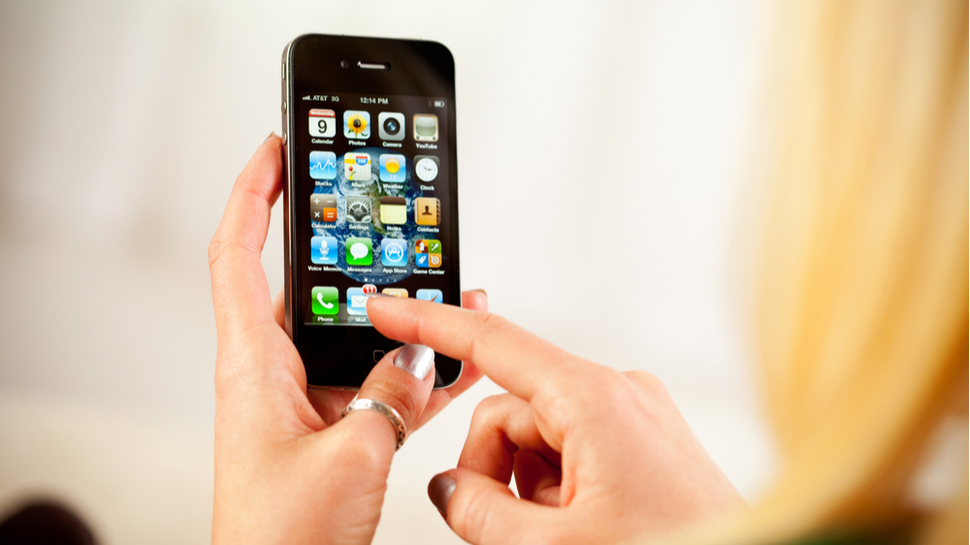The Mobile Industry Decade In Review: 2010 - 2014
What happened in the 2010s? We recap the highlights of the decade.

Ten years is a long time in technology, especially in a sector as innovative and fast paced as mobile. Here we take a trip down memory lane to review the changes that happened in the UK mobile industry during the 2010s
- UK 5G speeds slower than rest of world
- 5G in the UK: everything you need to know
- Operators reach £1bn shared rural network deal
2010: Market consolidation
The first year of the new decade saw the recently-merged T-Mobile and Orange combine into Everything Everywhere. The organisation became the UK’s largest mobile operator with 28.4 million customers and would play a major role in the industry in the subsequent years.
This potential was recognised by the Mobile Industry Awards, which declared Everything Everywhere CEO Tom Alexander as ‘Person of the Year’ – the first time the accolade had been awarded to a network boss.
The smartphone market continued to grow in relevance with a slew of major Android devices and the launch of the iPhone 4, while Microsoft’s latest attempt to capture a share of the elusive mobile market continued with the release of the Windows Phone platform. Apple also created an entirely new device category, the tablet, when it launched the iPad.
- Notable devices: iPhone 4, Samsung Galaxy S, HTC Nexus One
2011: Changing of the guard
The following year saw a major changing of the guard in handsets. Leaders Nokia and BlackBerry struggled to retain their relevance in a changing market landscape. The former partnered with Microsoft to create Windows Phone devices, while BlackBerry’s advantage in the enterprise space was slowly eroded by its rivals.
Its problems were exacerbated by a reliance on an aging operating system and a catastrophic outage in October of that year. Another industry pioneer, Motorola, was snapped up by Google in a move widely seen as an attempt to gain access to key patents, while HP launched and killed the TouchPad and WebOS.
Meanwhile, Tom Alexander was replaced as Everything Everywhere CEO by Olaf Swantee as the UK’s 4G spectrum auction continued to suffer perpetual delays. However the biggest story of the year was the death of Apple CEO Steve Jobs, a tragic loss that transcended the industry.
Are you a pro? Subscribe to our newsletter
Sign up to the TechRadar Pro newsletter to get all the top news, opinion, features and guidance your business needs to succeed!
- Notable devices: Nokia Lumia 800, Samsung Galaxy Nexus, Samsung Galaxy S II
2012: The 4G future
After years of lagging behind rivals in the US and Asia, the UK finally became a 4G nation in 2012. Everything Everywhere rebranded as EE after acquiring permission from Ofcom to launch LTE on its 1800MHz airwaves ahead of the spectrum auction. Consumers eager to make the most of the fancy new network could finally subscribe to Netflix, with the streaming service finally making the trip across the Atlantic.
Attempts to create a third platform to rival iOS and Android continued with the launch of Windows Phone 8 and BlackBerry 10 but both would eventually fade from relevance despite some early success.
On the device side, Samsung finally overtook Nokia as the world’s largest mobile phone manufacturer as Simon Stanford, VP for the Korean giant’s UK & Ireland telecommunications and network division, took home ‘Person of the Year’ at the Mobile Industry Awards.
- Notable devices: iPhone 5, Samsung Galaxy S III
2013: Flash sale
The UK’s long-awaited auction of 4G spectrum saw all four major operators get their hands on new frequencies, while BT also secured valuable airwaves. O2 and Vodafone, which set up a mast sharing joint-venture, launched 4G services on the same day that summer, while Three 4G went live in December.
Having withdrawn from Phones4U the previous year, Three continued to make waves in the mobile retail sector by ending its association with Carphone Warehouse.
Blackberry’s decline accelerated over the course of the year. Following a lacklustre commercial launch of its new operating system, the company put itself up for sale before backing away from a deal in favour of a significant shift in strategy from devices to services.
Nokia too, opted for a final roll of the dice. It sold its devices and services division to Microsoft for £4.6 billion and took full control of the Nokia Siemens Networks joint-venture.
- Notable devices: HTC One, BlackBerry Z10, Nokia Lumia 520
2014: Market disruption
The mobile retail sector transformed beyond recognition in 2014. O2, EE and Vodafone all withdrew from Phones4U, causing the firm to enter administration and collapse, while Carphone Warehouse and Dixons merged in a £3.8 billion deal.
Chinese tech giant Lenovo bought Motorola Mobility from Google, while Nokia’s prospects worsened as new Microsoft CEO Satya Nadella suggested the company would move away from devices in favour of a focus on cloud and mobile services.
Finally, BT became a mobile operator once again with the acquisition of EE. The deal combined the UK’s largest fibre and 4G networks and opened the door for converged services.
- Notable devices: LG G3, Google Nexus 6, BlackBerry Passport
- Here are the best 5G phone deals for December 2019
Steve McCaskill is TechRadar Pro's resident mobile industry expert, covering all aspects of the UK and global news, from operators to service providers and everything in between. He is a former editor of Silicon UK and journalist with over a decade's experience in the technology industry, writing about technology, in particular, telecoms, mobile and sports tech, sports, video games and media.